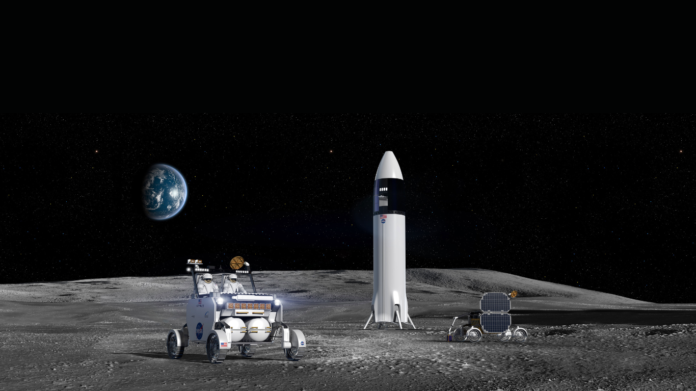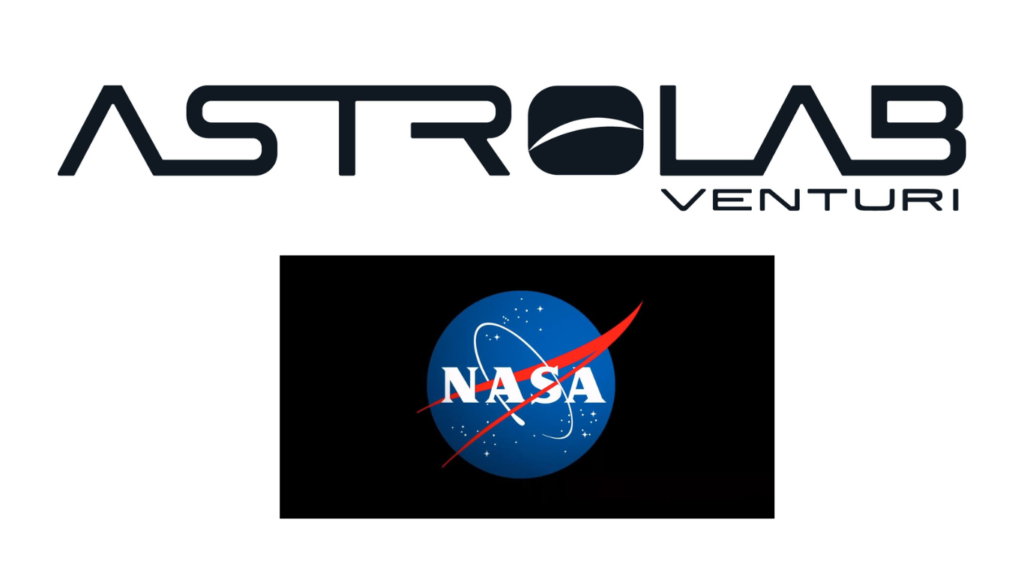
Venturi Astrolab, Inc. (Astrolab) announced that NASA has awarded the company, together with its teammates Axiom Space, Inc., and Odyssey Space Research, a contract to advance the development of the Lunar Terrain Vehicle (LTV) which will help Artemis astronauts explore more of the Moon’s surface on future missions. The Astrolab team is one of three teams to win contract awards. Astrolab’s contract is worth up to $1.9 billion. Collectively the three contract winners may be awarded task orders over the next 13 years with a total potential value of $4.6 billion. The contracts allow for two additional years for the completion of services.
“Astrolab is honored to have its FLEX rover selected by NASA to participate in the development of creating a Lunar Terrain Vehicle for the Artemis Campaign,” said Jaret Matthews, founder & CEO, Astrolab. “Our entire team, together with our business partners, are committed to delivering to NASA an LTV that serves as a critical tool in the agency’s efforts to establish a long-term human presence on the Moon.”
“We’re excited to work with Astrolab and the entire team to revolutionize lunar operations,” said Russell Ralston, Vice President of EVA, Axiom Space. “We look forward to offering our expertise in the design of vehicle interfaces for both the crew and spacesuits, ensuring astronaut safety and mobility on the surface of the Moon. This partnership showcases a collective commitment to pushing boundaries and driving advancements in space exploration.”

“It’s a privilege to be a part of the outstanding Astrolab team entrusted by NASA to advance development for the commercial FLEX rover for the LTV project,” said Brian Lunney, COO, Odyssey Space Research and former Flight Director, NASA. “We are excited and ready to start work with Astrolab, Axiom, and NASA doing what we know best to ensure safe, cost-effective, and sustainable lunar surface exploration.”
Astrolab first revealed the full-scale working prototype for its Flexible Logistics and Exploration (FLEX) rover in March of 2022. In the years since, the company has conducted thousands of hours of laboratory and field testing that has led to numerous design improvements. Tests included both crewed and telerobotic operations, deployment of a variety of large payloads, science operations with its robotic arm, and engineering testing of the rover’s mobility performance in challenging terrain.
As required by NASA, FLEX can carry two suited astronauts, accommodate a robotic arm to support science exploration, perform robotic cargo logistics, and survive the extreme temperatures at the lunar South Pole. FLEX can be operated remotely from Earth even when astronauts are not present, or it can be operated by suited astronauts.
Once FLEX arrives on the lunar surface, Astrolab expects that FLEX will become the largest and most capable rover to ever travel to the Moon. With a maximum combined rover and cargo mass of more than two tons, the FLEX rover is nearly three times the mass of its largest predecessor. This increased capacity provides significantly more opportunities to conduct scientific experiments and commercial endeavors on the lunar surface.






